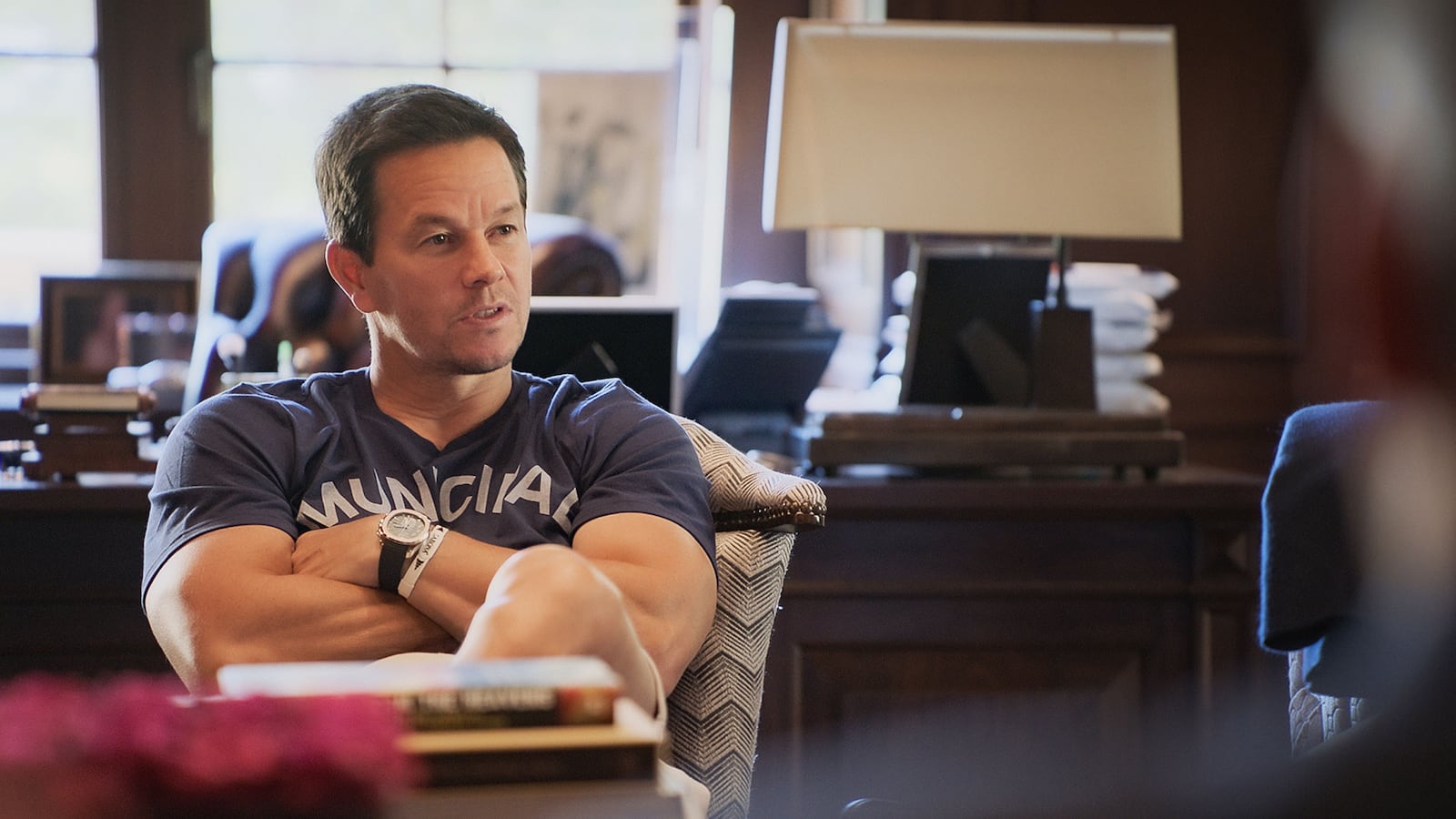Warner Bros. Discovery might’ve ethered dozens of movies and shows out of existence, but hey—at least we still have Mark Wahlberg’s Wahl Street. The pumped-up vanity project returns Thursday to HBO Max for a 10-episode second season that seems, at least early on, like it might peel back the branding and bravado and show us who the actor and entrepreneur really is. Alas… nah.
A “documentary series” about Wahlberg produced by one of his own production companies, Wahl Street offers a curated window into Wahlberg’s constant struggle to run his many, many business ventures. The show’s even gaze into the hubris of Wahlberg and those around him can border on self-parody—like the time in Season 1 when someone introduced an extremely ordinary-looking shirt design with the words, “We’re elevating the henley.” Shockingly, that season taught viewers precious little they didn’t already know—about Wahlberg or about business.
At first, Season 2 feels like business as usual. As the world continues to recover from a devastating pandemic, the safety and bodily autonomy of millions hang in the balance, and a major election looms, Mark Wahlberg is asking himself the big questions—like, “Is now the time to get into the tequila business?” and “Should I take my fitness company public?”
As we saw last season, Marky Mark keeps himself busy running a small empire of food chains, apparel and fitness companies, production shingles, and more. (I’m still dying to hear more about his fitness water company, AQUAhydrate.) The actor is relentless in his pursuit of business growth, even by the admission of his own colleagues, all of whom seem to be running on fumes and a shared dream that one day the boss might let them sleep.
You heard it here first from the co-founder of Wahlberg’s apparel line, Harry Arnett: “Mark wants new stuff all the time. It’s intense. He’s always full throttle. But he’s always good about the positivity that, ‘We got this. We can do this.’” Blink twice if you need help, Harry!
Things come to a screeching halt a few episodes into the season, however, when Wahlberg’s mother, Alma, passes away. A frequent character on the family’s long-running reality show, Wahlburgers, Alma’s sons describe her as warm and encouraging, capable of making each of her kids feel like her “favorite.” Her death seems to drag on the already worn-down Wahlberg, who spends the season stretching out his aching hips and battling a sore back.
But Wahl Street keeps its focus on the business, leaving viewers at a distance where just a little bit of proximity to the emotional chaos would’ve been far more insightful. Without the time to grieve and heal before his interviews for the show, Wahlberg understandably has little insight to offer about the loss of his mother and what it will mean for his life. (Although maybe that’s coming in future episodes.) Perhaps that’s why the series instead turns to his famous entrepreneur friends—whose talking-head appearances last season mostly offered condescendingly simple business advice—to educate viewers about the nature of grief. Their platitudes are about as useful as before. As sports executive Jeanie Buss sagely informs us, “Coming together in times of grief is what humanity is all about.” (Sure—but do we really need to hear this from the president of the Lakers?)

And then the grief gives way to an extended trailer for Father Stu, the faith-based “passion project” Wahlberg produces and stars in alongside Mel Gibson.
Nowhere is Wahl Street’s unintentional self parody more apparent than in its coverage of Father Stu, which is helmed by Gibson’s 32-year-old partner, Rosalind Ross, a first-time screenwriter and director who freely admits she was not raised Catholic. (Cue commentary about why it’s important for faith-based productions to be “authentic.”)
“Mark called me at 4 o’clock in the morning and said, ‘I can’t think of anybody better to direct this film than you,’” Ross says of being offered the directing gig on top of having written the screenplay. “And I was like, ‘I can think of about 100 people, but thank you.’”

Ross claims that Wahlberg had a profound emotional experience during a scene in which his boxer-turned-priest character sobs in the pews and asks why God has forsaken him. Wahl Street used clips from the actor’s filmography to punctuate his interior monologue in Season 1, but this season takes the gambit one step further to suggest that the rawest expression of his grief over his mother can be found in the climactic scene of his latest movie. That might be true, but it’s also hard to escape the feeling that all of our visits with Father Stu this season were little more than promotion for the film itself.
Then again, isn’t that what Wahl Street really is at its core—a DVD extras reel about Wahlberg and his many, many interwoven brand extensions? Even in the midst of a deep personal tragedy, Wahl Street sticks to neat platitudes where messy sincerity would’ve counted for far more. Is the goal here really to spark insights—about business, life, or anything else? Or are we all here to celebrate a wealthy man’s questionable management of what appears to be a cluster of extremely ordinary companies? Just as before, it’s hard to tell who this series is really meant to inspire—apart from, perhaps, Marky Mark himself.






